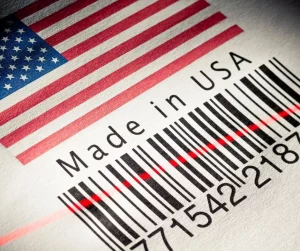 Recently, the Federal Trade Commission (FTC) settled a lawsuit with a company it says made false and misleading claims about its consumer products. Specifically, the company advertised on its website and social media accounts that its goods were “Made in USA,” even though most of them were imported. This is a violation of the FTC Act, and if your business is making similar claims about foreign-made products, you too could find yourself in legal hot water.
Recently, the Federal Trade Commission (FTC) settled a lawsuit with a company it says made false and misleading claims about its consumer products. Specifically, the company advertised on its website and social media accounts that its goods were “Made in USA,” even though most of them were imported. This is a violation of the FTC Act, and if your business is making similar claims about foreign-made products, you too could find yourself in legal hot water.
Patriotic promotion
One of President Biden’s first actions in office was to sign an executive order requiring federal agencies to buy American goods (with at least 55% of their components U.S.-made) and services whenever possible. Many consumers and companies also prioritize buying U.S.-made goods. So it’s easy to understand why manufacturers, retailers and other businesses would want to promote their American-made offerings.
But unless your products are entirely or substantially made in the United States of U.S.-originated components, you can’t label or advertise them as such. In its Enforcement Policy Statement of U.S. Origin Claims, the FTC specifies that “a product that is all or virtually all made in the United States will ordinarily be one in which all significant parts and processing that go into the product are of U.S. origin.” Although “negligible” portions of a product can be manufactured abroad, a product’s final assembly or processing must take place in the United States.
The FTC also considers the percentage of a product’s total manufacturing costs attributable to U.S. costs and the “remoteness” of foreign content. This refers to how far back in the manufacturing process foreign components were used.
Qualified language and implied claims
Because there are no hard-and-fast rules about what constitutes a “virtually all” American-made product, it’s best to be cautious. The FTC advises businesses to use qualified language — such as “Made in USA with U.S. and foreign parts” — on labels and in marketing materials. This language isn’t as catchy as “Made in USA,” but it’s safer for your company.
You also need to avoid implied origin claims. For example, describing a pair of imported jeans as “American quality” or “classic American style” can be risky. Recently, the FTC accused a company of violations for marketing its imported hats with phrases such as “Choose American.” This kind of marketing is likely to mislead potential customers into believing foreign goods are made in the United States.
Don’t risk your business with false “Made In USA” claims
Regulatory peril isn’t the only risk associated with false “Made in USA” claims. Civil liability, bad publicity and subsequent sales losses are very real threats. If you’re unsure about how to label or market your products, consult an attorney familiar with the regulations. Contact us for help attributing product costs and for other accounting and tax issues.
© 2021

CPA/CFE
lanasa@hwco.com




